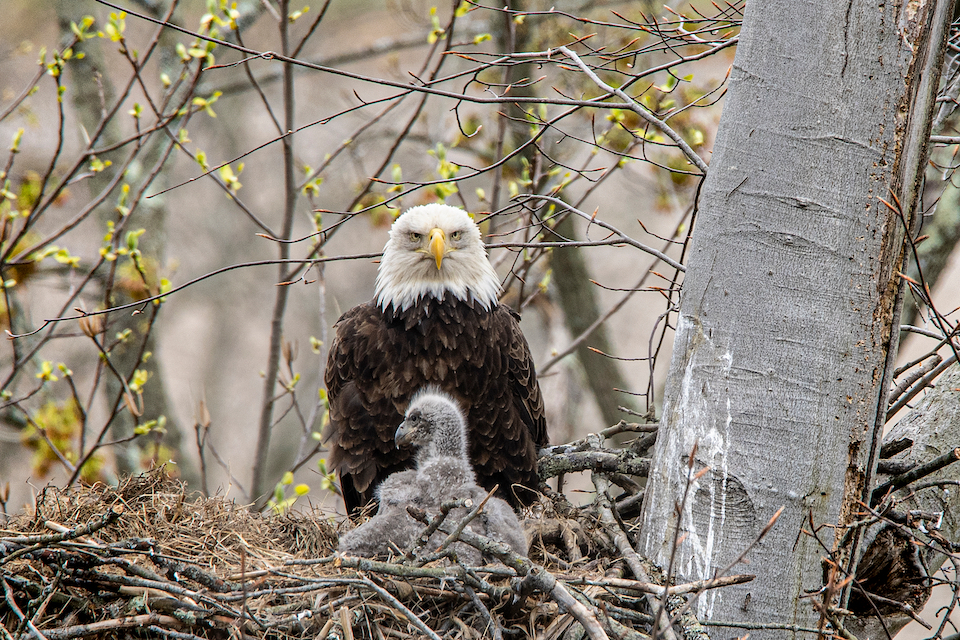Animal Wellness notes that millions of hunters have already switched to copper, steel, and far less toxic metals for ammunition
Washington D.C. — Late this week, U.S. Senator Tammy Duckworth, D-Ill., introduced legislation to phase out the use of lead ammunition on National Wildlife Refuges. The legislation would put an end to the needless incidental poisoning of millions of wild animals by lead left behind in fields, forests, and wetlands, including in the remains of animals peppered with fragmented shot and not retrieved.
Duckworth is Chairwoman of the Subcommittee on Fisheries, Water, and Wildlife, and the top Democrat in the Senate on wildlife policy. Her bill is S. 4157 and is a companion to H.R. 405 introduced by Rep. Ted Lieu, D-Calif.
Animal Wellness Action, the Animal Wellness Foundation, and the Center for a Humane Economy are calling on lawmakers to act on the legislation, with Animal Wellness Foundation president Annie Harvilicz, D.V.M., calling the malleable metal “a known toxin that, left behind after discharged from a weapon, quietly but mercilessly kills countless wild animals while also posing a threat to families who consume wild game.”
A study published in February 2022 in the journal Science documented mass poisoning of eagles by lead scattered across our wildlands. Fragments of lead ammunition in the remains (so-called “gut piles”) of hunted animals are having population-level effects on eagles.
The eight-year study of 1,210 bald and golden eagles across 38 states — co-authored by dozens of wildlife scientists — determined that 46 to 47 percent of eagles had “bone lead concentrations above thresholds for chronic poisoning.” According to the study, a third of eagles had “acute [lead] poisoning.”

Lead has also been the leading cause of death for California condors, and partly in response to the peril posed by lead to this highly endangered species, California completely phased out the use of lead (with the prohibition applying to federal lands) in July 2019. Other states with condors, such as Arizona, have taken more limited remedial actions. Dr. Harvilicz notes that lead fragments left behind on the landscape and in the carcasses of animals are small and make it very likely that animal scavengers and even people consuming deer meat will incidentally ingest the lead pellets.
The federal government has primary authority for wildlife management on National Wildlife Refuges. “Given all we know about the toxic properties of lead, the last very last place lead ammunition should be used is on federal lands specifically set aside to shelter and preserve wildlife,” said Wayne Pacelle, president of Animal Wellness Action.
More than 500 scientific studies published over the last century have documented that at least 134 species of wildlife suffer from lead poisoning, including golden eagles, bald eagles, and grizzly bears.
Lead alternatives are readily available and are comparably priced. Moreover, copper and steel ammunition outperform lead, according to many hunters. In 1991, the Fish and Wildlife Service banned the use of lead ammunition in waterfowl hunting and the results have been positive on the ecosystem. Waterfowl hunting has continued uninterrupted, lead poisoning has been reduced, and numerous species have been protected for a variety of wildlife uses. Since the implementation of the ban, researchers found that the use of lead-free shot reduced the death of mallards from lead poisoning by 64 percent, reduced lead in black ducks by 44 percent, and overall saved approximately 1.4 million ducks a year. The study further shows that blood lead concentrations significantly declined in both golden eagles and turkey vultures within a year.
The U.S. Fish and Wildlife Service (FWS) has a statutory duty to act to protect and conserve wildlife on its lands, and in 2017, consistent with that responsibility, the agency issued a Director’s Order to phase out the use of lead on these federal lands by 2022. However, the order was undone by the new Secretary of Interior on his first day, taking no time to examine the science and data behind the original policy. Nothing prevents the FWS from taking immediate action on this issue, with abundant scientific support for its executive agency action.
“Congressional action is welcome, but the U.S. Fish and Wildlife Service should ban the use of lead ammo on National Wildlife Refuges without any delay,” added Pacelle. “We are immensely grateful to Chairwoman Duckworth for leading the way on wildlife policy in the U.S. Senate and working to reduce lead poisoning of wildlife by the millions.”


